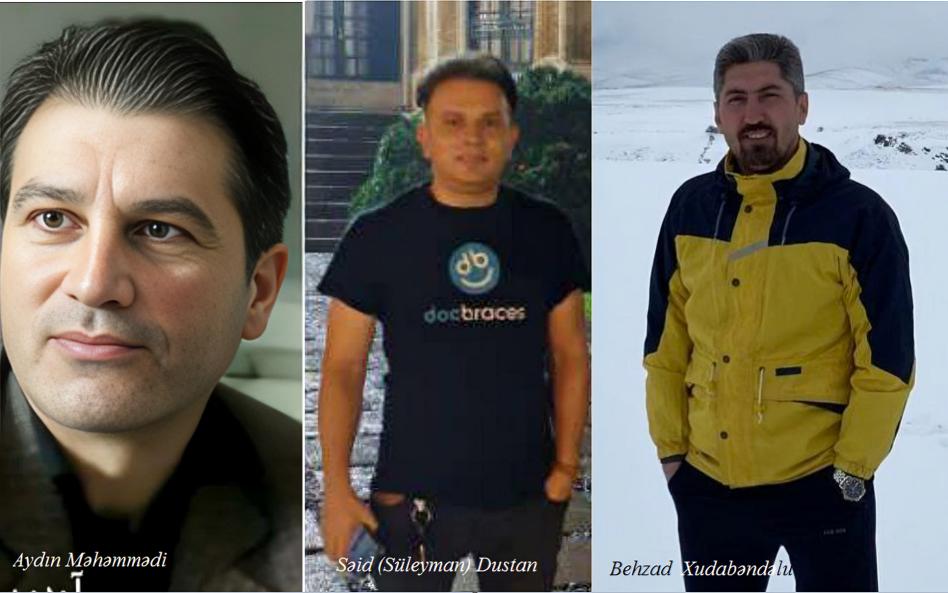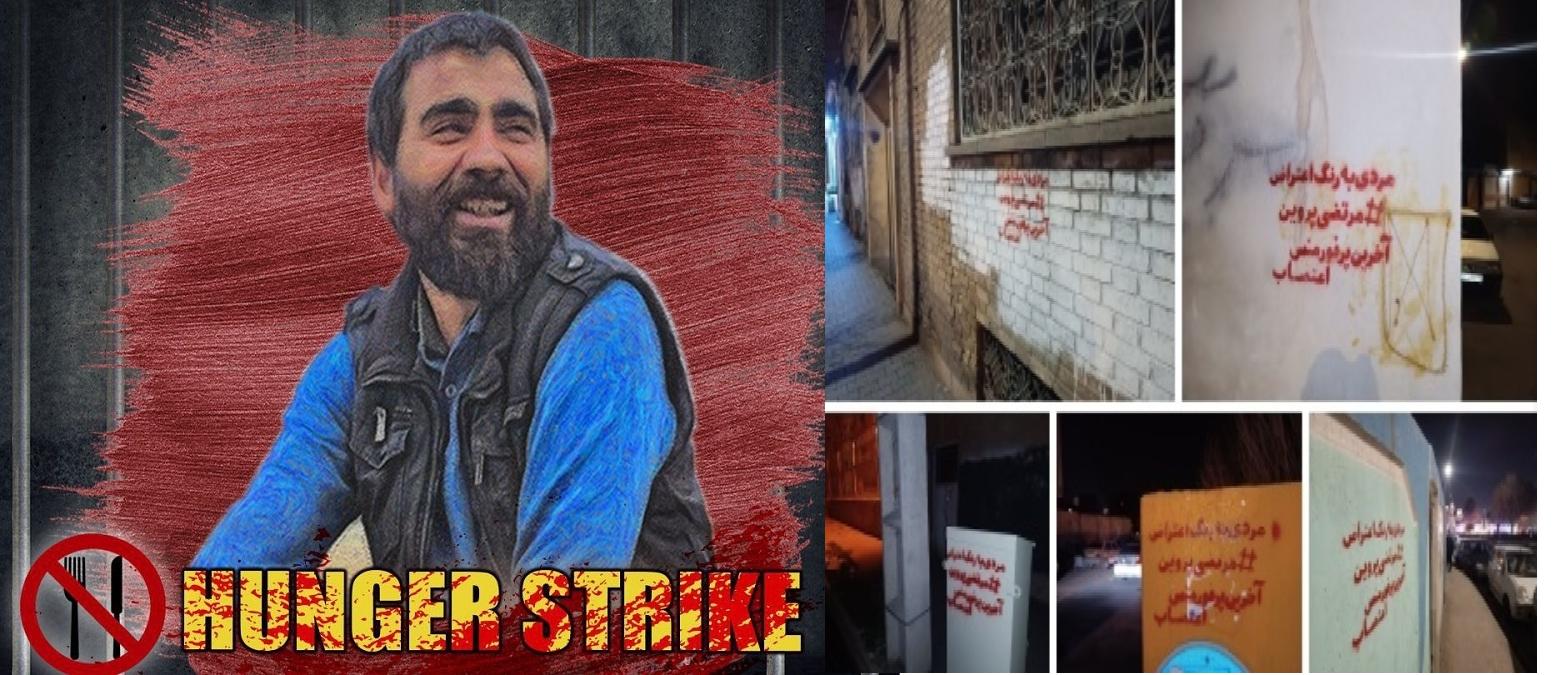Kurds' dubious tactics yield two parliamentary mandates in West Azerbaijan province Tehran regime okays Kurdish dominance in province
In Iran's West Azerbaijan Province, Kurdish candidates have reportedly gained two out of three parliamentary mandates in the March 1 elections. The province, predominantly inhabited by ethnic Azerbaijanis, is unhappy with the outcome. Local activists believe the outcome was manipulated through voter fraud and collusion with local authorities to shift the ethnic balance in favor of the Kurds, whom they see as outsiders in the region.
Following the announcement of the election results in the province that borders Türkiye, where a significant portion of the nearly 500-km-long border area is inhabited by ethnic Kurds, there was a swift response from Kurdish activists, who took to the streets to celebrate their victory and reaffirm their territorial claims over Azerbaijani lands.
MP Adil Najafzadeh, representing the cities of Khoy and Chaypara in West Azerbaijan province in the Iranian parliament, has addressed the Kurdish territorial claims by responding to their allegations.

"I will defend the rights of Azerbaijan, the territorial integrity of West Azerbaijan and Urmia (Orumiyeh), against those with differing opinions," the MP declared defiantly.
Following the announcement of Hakim Mamakan and Shahin Jahangiri as the victors, the Kurdish community organized a lively celebration outside the governor's office in Urmu, echoing the chant "Urmiya is Kurdistan".
Reports surfaced of widespread election fraud in Urmu, Sulduz, Maki, and various other cities, to secure victory for Kurdish candidates. Groups of Kurds from different regions were allegedly transported to these cities to cast their votes in support of the winning candidates.
Independence for Southern Azerbaijan is an inevitable future attainment
During a recent episode of the "Open Remarks" talk show on Gunaz.tv, host Umid Naccari discussed the significance of the election results in West Azerbaijan. He highlighted how activists, the elderly, and representatives of the intelligentsia in the province had identified several potential candidates for the upcoming parliamentary elections on March 1.
However, these candidates were not approved by the Guardian Council to participate in the polls. As a result, supporters of the regime were granted permission to run in the parliamentary elections. Naccari emphasized the importance of this development and its implications for the political landscape in the region.
The host criticized the election results in West Azerbaijan Province, calling them "fictitious and biased," adding that Kurds in the province have territorial claims to local ethnic Azerbaijani lands.
Journalist Masud Haray criticized Reza Pahlavi for resettling 100,000 Kurds to Azerbaijani lands in Southern Azerbaijan. He also lashed out at the current theocratic regime for following similar policies by creating a buffer zone between Azerbaijanis in Iran and Türkiye.
National activist Javad Ranjbar suggested that Iran's similar policies are aimed at severing relations between South Azerbaijan and the Turkic world. He pointed out that over a 500-km-long area of South Azerbaijan bordering Türkiye is populated by Kurds. He further accused the Islamic Iran of resettling Armenians along the border as part of the Tehran regime's general policies.
"It is inevitable that Southern Azerbaijan will achieve independence in the future, regardless of external influences. This is a stark reality that we must face, as our lands are currently under occupation. The national movement in Southern Azerbaijan has developed a strategic plan for West Azerbaijan Province, recognizing its importance in the region. Activists chose to boycott elections in Islamic Iran to avoid legitimizing the regime, but now (on March 1, they) saw the strategic value in participating in parliamentary polls to minimize losses in the province as they work towards independence," Javad Ranjbar added.
The Tehran regime persists in its persecution of activists in Southern Azerbaijan
Meanwhile, despite the continuous protests and widespread discontent in Iran, which are often marked by large demonstrations, the government in Tehran appears unwilling to stop the oppression of Azerbaijani activists, instead choosing to hand them lengthy prison sentences.
Behzad Khudabandalu, Aydın Mahammadi, and Said Dustan, activists of the South Azerbaijan national movement, were granted temporary release pending the completion of the investigation into their criminal cases.
On March 4, Behzad Khudabandalu was summoned to testify at the 3rd Department of the General Prosecutor's Office in Goshachay district (now Mianduab) regarding the charges against him. Following the department's inquiry and his testimony, charges were brought against him. He was released temporarily upon posting a bond of 300 million tomans as security. Khudabandalu is facing allegations of promoting groups or organizations that oppose the Islamic Republic system, influencing public opinion, and engaging in anti-establishment propaganda.
It is worth noting that Khudabandalu announced on his Instagram account on February 27 that he was required to appear before the prosecutor's office within 5 days following an electronic notification.
Similarly, two other activists from the South, Aydın Mohammadi and Said Dustan, who had been detained previously and transferred to Ward 209 of Evin Prison in Tehran, were also released temporarily pending the conclusion of the investigations into their cases.
They had to provide property documents worth 800-300m tomans, respectively, as collateral for their release. Dustan was released temporarily on February 29, while Mohammadi was released on March 3.
Expressing solidarity with the activist on a hunger strike
Artist Murtaza Parvin Juda, a prominent figure in the South Azerbaijan national movement, has been on a hunger strike in Evin Prison in Tehran since March 4, marking the 10th day of his protest. In a show of solidarity for the detained activist held in the Security Department of the prison, supporters in Tabriz have painted graffiti on the streets, depicting him as a hero of protest and highlighting his hunger strike. Additionally, a social media campaign with the hashtag #Morteza_Parvin has been launched to raise awareness and garner support for the cause.
It has been reported that Murtaza Parvin is suffering from severe back pain caused by a herniated disc, leading to concerns about his deteriorating physical health and potential danger to his well-being due to his weakened state. According to a statement from Abbas Lisani Information Page, Murtaza's brother Mujtaba Parvin shared a video revealing that his brother had a phone call with the family on March 1, during which he expressed his determination to continue the hunger strike and to sacrifice his life for Azerbaijan.

The activist was forcefully taken from his home by security officers in four vehicles on February 6 at 6:30 in the morning, without any legal authorization, and detained in the Security Department. Murtaza Parvin, known for his work as a visual artist and performer from Ardabil, has faced multiple arrests in the past for his involvement in various protests against issues such as the drying of Lake Urmia (Orumiyeh) and the mistreatment of the Turkish population in South Azerbaijan by Iranian state channels. His activism also includes participation in marches to historical sites like Bazz (Babak) Castle.
Conclusion
Iran's theocratic regime is 45 years old and despite optimistic forecasts, the theocratic regime in Iran has managed to maintain its power and control over the country, even emerging victorious from the 10-year war with Iraq. The regime in Tehran symbolizes the authority in Iran, implementing various strategies in both domestic and foreign policies in recent times.
One of the tactics utilized by the Tehran regime is the creation of fake opposition groups to disrupt the internal opposition. These groups serve to undermine the genuine opposition and exert influence from within. Additionally, the regime has sought to infiltrate foreign opposition by embedding its own people or through monetary means. This strategy acts as a shield against external criticism.
The regime in Tehran has also collaborated with supporters of Kurdish terrorist groups in regions, inhabited by South Azerbaijani Turks, aiming to target this ethnic group. This approach not only weakens internal opposition but also bolsters terrorist organizations. Furthermore, in parliamentary elections, the regime manipulated the results in West Azerbaijan province to ensure Kurdish victory through fraudulent means, exacerbating tensions with the Turks of Southern Azerbaijan.
The response from the Organization of Turkic States, particularly Türkiye, and Azerbaijan, is crucial in countering these deceitful schemes. Collaborative efforts from these nations are essential in safeguarding peace in the region. The Tehran regime's multifaceted strategies in domestic and foreign policies pose a threat to the security of the Turkic world, necessitating vigilance from other Turkish states and international organizations.








